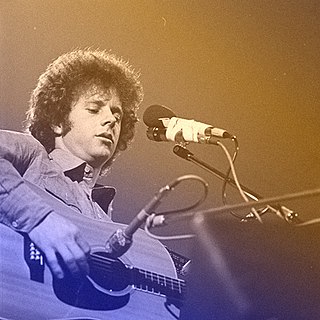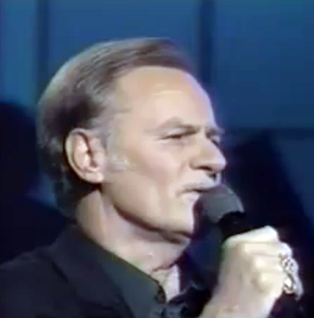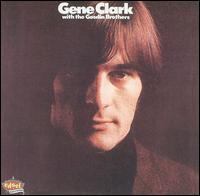
Christopher Hillman is an American musician. He was the original bassist of and one of the original members of the Byrds, which in 1965 included Roger McGuinn, Gene Clark, David Crosby and Michael Clarke.

The Byrds is a four-CD box set by the American rock band the Byrds. It features music that had previously been released between the mid-1960s and early 1970s, along with a number of previously unreleased tracks and some new recordings from 1990. The box set was issued on October 19, 1990 by Columbia/Legacy and reached number 151 on the Billboard albums chart.

Live at the Fillmore — February 1969 is a live album released by the American rock band the Byrds in 2000 on Columbia/Legacy. Compiled from two performances at the Fillmore West on February 7 and 8, 1969, the album includes several songs that are not found on any of the group's studio albums.

The Essential Byrds is a comprehensive two-CD compilation album by the American rock band the Byrds. It was released in 2003 as part of Sony BMG's The Essential series. The Essential Byrds did not chart in the U.S. or the UK. A 3.0 edition of the compilation released in 2011 contains a third disc with six additional tracks: "Spanish Harlem Incident", "I Knew I'd Want You", "The World Turns All Around Her", "I See You", "Change Is Now", and "One Hundred Years from Now".

Vernon Gosdin was an American country music singer. He had 19 top-10 solo hits on the country music charts from 1977 through 1990. Three of these hits went to Number One: "I Can Tell By the Way You Dance ", "Set 'Em Up Joe", and "I'm Still Crazy".

Gene Clark with the Gosdin Brothers is the debut solo album of Gene Clark, released in February 1967 on Columbia Records, catalogue CS 9418. It was his first effort after his departure from folk-rock group the Byrds in 1966. The music is a unique mixture of pop, country rock and baroque psychedelic tracks, which received favorable reviews and reinforced Clark's stature as a talented singer-songwriter. Unfortunately for Clark, it was released almost simultaneously with the Byrds' Younger Than Yesterday, also on Columbia, and partly because of his 18-month absence from public attention was a commercial failure.

The Flying Burrito Bros is the third album by the country rock group, The Flying Burrito Brothers, released in the spring of 1971. Before recording sessions for the album began, Chris Hillman fired Gram Parsons from the band, leaving Hillman and "Sneaky" Pete Kleinow as the only original continuing members. In Parsons' place, the band hired a young unknown musician named Rick Roberts, who later was the primary lead singer of Firefall. Guitarist Bernie Leadon would also leave the band shortly after the album's release, going on to co-found the Eagles.

The Original Singles: 1967–1969, Volume 2 is a compilation album by American rock band the Byrds.
Nashville West was a short-lived American country rock quartet, that was briefly together in the late 1960s. The group comprised multi-instrumentalist Gene Parsons, guitarist Clarence White, singer-guitarist-fiddler Gib Guilbeau and bassist Wayne Moore. Parsons and White left the band to join The Byrds while Guilbeau and Parsons later joined the Flying Burrito Brothers.

Will the Circle Be Unbroken: Volume Two is a 1989 album by the Nitty Gritty Dirt Band. The album follows the same concept as the band's 1972 album, Will the Circle Be Unbroken, which featured guest performances from many notable country music stars.

There Is a Season is a four-CD and one DVD box set by the American rock band the Byrds that was released on September 26, 2006 by Columbia/Legacy. It comprises 99 tracks and includes material from every one of the band's twelve studio albums, presented in roughly chronological order. The bonus DVD features ten clips of the Byrds lip-synching their hits on television programs between 1965 and 1967. Upon release, the box set failed to reach the Billboard 200 chart or the UK Albums Chart. There Is a Season supplants the band's earlier box set, The Byrds, which was released in October 1990.

The Very Best of The Byrds is a compilation album by the American rock band The Byrds, released by Columbia Records in 1997. Initially the compilation was only released in Europe and Canada but as of 2006, the album has seen some release in the U.S. The album contains a total of 27 songs, arranged in chronological order, that span the first five years of the band's career.

Live at Royal Albert Hall is a live album by the American rock band the Byrds, released in 2008 on Sundazed Records. The album consists of recordings from the band's appearance at the Royal Albert Hall in London, England on May 13, 1971. Although the tapes had been in lead guitarist Roger McGuinn's possession since the concert took place, the album represents the first official release of all tracks. In addition to the regular CD release, Live at Royal Albert Hall 1971 was also released as a double album vinyl LP.

History of The Byrds is a double album compilation by the American rock band the Byrds and was released on May 18, 1973 by CBS Records. The compilation was released exclusively in Europe and the UK, peaking at number 47 on the UK Albums Chart, but it was also available in the United States as an import.
"Farewell", also known as "Fare Thee Well", is a song by American singer-songwriter Bob Dylan. Dylan wrote the song in January 1963. He considered it for his third album, The Times They Are a-Changin', but only attempted a few takes during the album's first studio session. Dylan's earlier recordings of "Farewell" found their way onto various bootlegs, and a collection of demos that included the song was released in October 2010 on The Bootleg Series Vol. 9 – The Witmark Demos: 1962–1964.

The Hillmen were a southern Californian bluegrass group. Formed in 1962, the original line-up of the Golden State Boys consisted of Vern Gosdin on guitar and lead vocals, his brother Rex Gosdin on double bass, Hal Poindexter on guitar, and Don Parmley on banjo. Poindexter left the group in late 1962, however, and was replaced by 17-year-old mandolin prodigy Chris Hillman. Hillman, who had previously been a member of the high-profile San Diego bluegrass group the Scottsville Squirrel Barkers, was invited to join the Golden State Boys by Parmley, after the pair met at a bluegrass evening at The Ice House folk club in Pasadena. Upon his recruitment, the group briefly changed their name to the Blue Diamond Boys before finally settling on The Hillmen, in honor of their mandolin playing wunderkind.
James Dickson was born in Los Angeles, California, son of a diesel engineer in the United States Navy. He was an avid sailor as a teenager, and enlisted in the United States Army in 1946 before he embarked on a career in the recording industry as a self-taught record producer and band manager. Before producing the first Elektra Records Bluegrass records he produced his first record, an LP on his own label, Vaya. He eventually sold the rights of Lord Buckley's 1955 album Hipsters, Flipsters and Finger Poppin' Daddies, Knock Me Your Lobes to Elektra and it was in print for another 25 years. Jim Dickson was the lone individual behind Elektra Records Los Angeles Bluegrass albums. In 1962 he produced his first bluegrass record for Elektra called Dian and the Greenbriar Boys by the Greenbriar Boys and a Hollywood country singer, Dian James. While working on the collaboration between Greenbriar Boys and Dian James, Dickson discovered the Dillards and with the help of Ralph Rinzler convinced Elektra Records that they were a good Bluegrass group. He went on to produce three of their records, 1963's Back Porch Bluegrass, 1964's Live!!!! Almost!!! and 1965's Pickin' and Fiddlin' which featured fiddler, Byron Berline. Rosenberg notes that Pickin' and Fiddlin' "was unlike any previous bluegrass album; it was an LP of old-time fiddle music played to bluegrass backing." Dickson was behind was the first ever recording of a Bob Dylan song by a bluegrass band, The Dillards recording of Bob Dylan's "Walkin' Down the Line" on their 1964 album Live!!!! Almost!!!

We Shall Overcome is a 1963 album by Pete Seeger. It was recorded live at his concert at Carnegie Hall, New York City, on June 8, 1963, and was released by Columbia Records.

The Bluegrass Cardinals were a Bluegrass band from Los Angeles, California. The group is credited with being the first bluegrass band to record bluegrass gospel in a cappella. Founded in 1974, the Bluegrass Cardinals disbanded in 1997 when founding member Don Parmley announced his retirement from music.
Don Parmley was a bluegrass musician known best for his work with the Bluegrass Cardinals, a group he formed in 1974. Prior to Bluegrass Cardinals, Parmley was a member of The Hillmen.

















